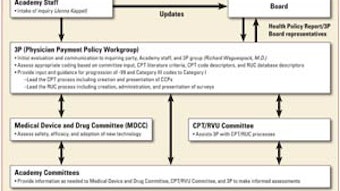Better Hearing and Speech Month
May is Better Hearing and Speech Month. This annual event provides opportunities to raise awareness about communication disorders and to promote treatment that can improve the quality of life for those who experience problems with speaking, understanding, or hearing. You may want to offer the following short article, tips, and AAO-HNS resources to your patients during this month. Speech and language disorders can take many forms and can limit academic achievement, social adjustment, and career advancement. An individual may be born with a speech or language disorder, or it may develop due to an injury or illness. The National Institute on Deafness and Other Communication Disorders reports that nearly 43 million people in the United States suffer from a speech, voice, language, or hearing impairment. Almost 28 million people suffer from a hearing loss. About 10 percent of children have moderate to severe communication impairments, including speech production/articulation, stuttering, and language-learning difficulties. Children with speech and language impairments are four to five times more likely than their peers to experience other language-learning disabilities, including significant reading problems. About 1 million people in the United States have aphasia—a language disorder resulting from brain damage caused by a stroke. Now is a good time to take stock of your own hearing and seek help if you think you may have a problem. You may have hearing loss if you experience the following: Frequently ask people to repeat themselves Often turn your ear toward a sound to hear it better Understand people better when you wear your glasses or look directly at their faces Lose your place in group conversations Keep the volume on your radio or TV at a level that others say is too loud Have pain or ringing in your ears Find out more about hearing and speech health by visiting http://www.entnet.org/AboutUs/publicCampaigns.cfm. Watch for an online interview with James E. Saunders, MD, later this month.
May is Better Hearing and Speech Month. This annual event provides opportunities to raise awareness about communication disorders and to promote treatment that can improve the quality of life for those who experience problems with speaking, understanding, or hearing. You may want to offer the following short article, tips, and AAO-HNS resources to your patients during this month.
Speech and language disorders can take many forms and can limit academic achievement, social adjustment, and career advancement. An individual may be born with a speech or language disorder, or it may develop due to an injury or illness.
The National Institute on Deafness and Other Communication Disorders reports that nearly 43 million people in the United States suffer from a speech, voice, language, or hearing impairment. Almost 28 million people suffer from a hearing loss. About 10 percent of children have moderate to severe communication impairments, including speech production/articulation, stuttering, and language-learning difficulties. Children with speech and language impairments are four to five times more likely than their peers to experience other language-learning disabilities, including significant reading problems. About 1 million people in the United States have aphasia—a language disorder resulting from brain damage caused by a stroke.
Now is a good time to take stock of your own hearing and seek help if you think you may have a problem. You may have hearing loss if you experience the following:
- Frequently ask people to repeat themselves
- Often turn your ear toward a sound to hear it better
- Understand people better when you wear your glasses or look directly at their faces
- Lose your place in group conversations
- Keep the volume on your radio or TV at a level that others say is too loud
- Have pain or ringing in your ears
Find out more about hearing and speech health by visiting http://www.entnet.org/AboutUs/publicCampaigns.cfm. Watch for an online interview with James E. Saunders, MD, later this month.







